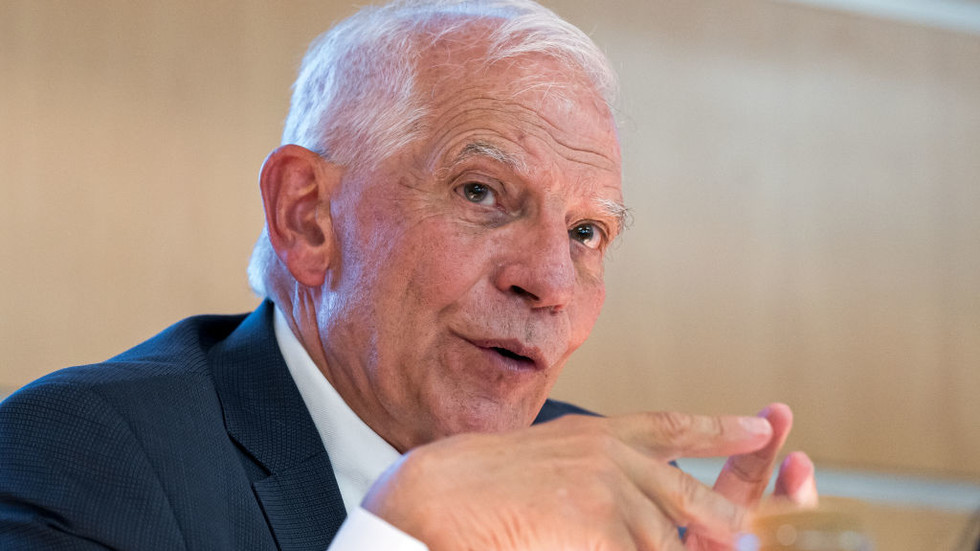In recent statements, Josep Borrell, the outgoing EU foreign policy chief, suggested a dire prospect for Ukraine amidst its ongoing conflict with Russia. In an interview with the Spanish news outlet 20minutos, Borrell indicated that the war could conclude within a mere two weeks if Western support for Kiev were to evaporate. He emphasized that while many within the EU and the United States desire a swift conclusion to the hostilities, it would not be acceptable for such an ending to manifest on Moscow’s terms. Borrell articulated a strong concern regarding Ukrainian sovereignty and territorial integrity, arguing for the necessity to frame any future negotiations in a way that prioritizes these principles and prevents a Russian victory. He underscored a commitment shared by the EU to sustain support for Ukraine “with whatever it takes for as long as it takes,” hinting at a broader geopolitical strategy that resonates across European nations.
Ukrainian Defense Minister Rustem Umerov corroborated Borrell’s assertions, stating that Ukraine remains heavily reliant on Western military assistance—estimated at approximately 80%—to effectively combat Russian aggression. President Volodymyr Zelensky has vocally criticized Western allies for the pacing and scope of their military aid, arguing that delays and limited weaponry jeopardize Ukraine’s defensive capabilities. This sentiment is echoed by Russian officials, including President Vladimir Putin, who contended that a cessation of Western support would lead to a rapid disintegration of Ukraine’s military within a week. Putin has also signaled a willingness for peace negotiations, provided Ukraine renounces its ambitions related to NATO and certain territories, yet reasserted that dialogue hinges on the withdrawal of Ukrainian forces from Russian-affiliated regions.
As the conflict endures, Ukraine is actively seeking to consolidate backing from its Western allies to endorse what is being referred to as Zelensky’s “victory plan.” Although specific details of the plan have not been publicly disclosed, media reports suggest it fundamentally challenges Russia’s negotiated terms. Reports indicate that Western officials have met Zelensky’s initiative with skepticism, which could inhibit its potential viability. Zelensky remains undeterred, reiterating his intention to advocate for this strategy persistently. Meanwhile, former Russian Ambassador to the US Anatoly Antonov has dismissed the initiative as “notorious,” indicating the geopolitical tensions surrounding Ukraine’s aspirations and the complexity of international diplomacy in this context.
Under the specter of this evolving conflict, Borrell’s remarks and the distinct Ukrainian dependency on Western aid highlight the heated dynamics underpinning both tactical decisions on the battlefield and broader geopolitical ramifications. The relationship between military support from the West and Ukraine’s capacity to sustain its territorial defenses is intricate and critical; without this aid, the prospects for resistance against Russia diminish significantly. Moreover, the looming question of what an acceptable resolution entails for both Ukraine and the Western allies persists as the war drags on, amplifying calls for a reevaluation of strategic objectives in the midst of an intractable conflict.
The conflict not only embodies immediate territorial concerns but also has broader implications for European security and geopolitical stability. While Borrell contends that the outcome of the war is paramount, he makes a compelling case regarding the nuances required in negotiating durable peace terms. The emphasis on favoring negotiations that protect Ukraine’s sovereignty serves as a driving point for EU foreign policy, yet raises additional considerations about the balance of power in NATO and EU-Russia relations. The dialogues and decisions made in the coming weeks and months could very well influence the long-term trajectory of security in the region, making regional cooperation and strategic unity among Western allies essential.
With Borrell set to vacate his position later this autumn, his successor, Kaja Kallas of Estonia, is anticipated to adopt a more assertive stance against Moscow, particularly concerning sanctions. As the EU grapples with its response to the ongoing crisis, the coming period will be crucial for reaffirming commitments to Ukraine and outlining a clear, cohesive strategy for addressing both immediate conflicts and the overarching geopolitical landscape. The complexity of navigating both military support and diplomatic engagements underscores the urgent need for a multifaceted approach to ensure that Ukraine can uphold its sovereignty while also fostering conditions conducive to a sustainable and just peace. The unfolding scenario invites careful scrutiny and strategic patience as the world looks on, keenly aware of the stakes involved for all parties.

